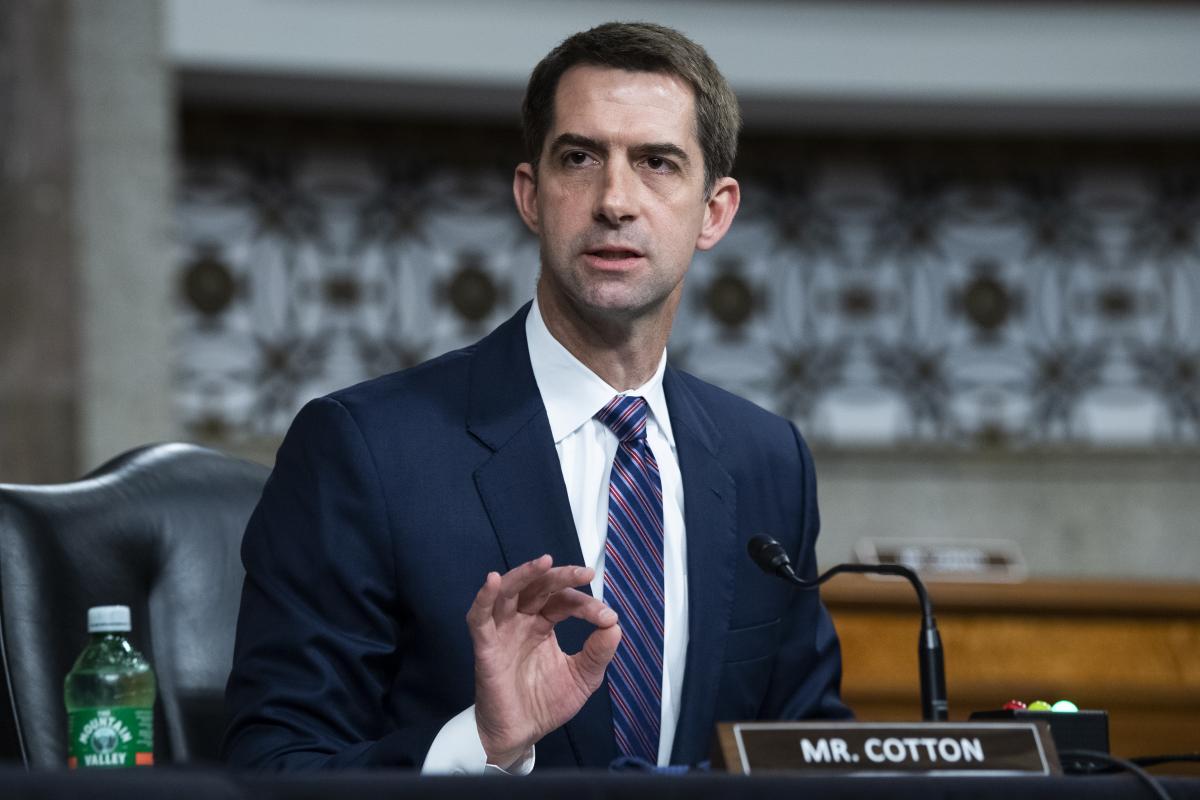
A bill introduced in the Senate by Republican Tom Cotton of Arkansas proposes a new tax on the largest endowments of private institutions -- revenue that would then be used to support apprenticeship programs.
The Ivory Tower Tax Act, introduced by Cotton this month, would impose a 1 percent tax on the fair market value of private colleges' endowments worth more than $2.5 billion and $500,000 per full-time enrolled student. It would only apply to colleges that don’t have a religious mission and that have more than 500 full-time students.
The bill would also require these institutions to disburse at least 5 percent of their endowment per year “to support their educational mission,” according to a release. The penalty for failing to distribute the funds would be equal to 30 percent of the undistributed excess endowment amount.
“Our wealthiest colleges and universities have amassed billions of dollars, virtually tax-free, all while indoctrinating our youth with un-American ideas,” Cotton said in a statement, adding that the revenue would “create high paying, working-class jobs.”
Cotton estimates the bill would generate $2 billion per year in revenue for registered apprenticeship programs. And while funding for apprenticeships is necessary, said Sandy Baum, a nonresident senior fellow at the Urban Institute’s Center on Education Data and Policy, taxing endowments of private institutions to generate revenue may not be the way to go.
Private college endowments are funded by private charitable donations, and the money is often used for student financial aid, research and campus improvements, among other expenses.
“Most of these institutions could and should enroll more low-income students, but they are spending a lot of money making education accessible to low-income students,” Baum said. “They are funding health-care research that is saving people's lives. They're funding technology research and graduate study that's really valuable. I think the idea of saying they're rich, therefore they're not doing anything good, doesn't make sense.”
Endowments of private colleges weren’t taxed until the enactment of the 2017 Tax Cuts and Jobs Act, which imposed a 1.4 percent tax on investment income at institutions with at least 500 students and endowments worth at least $500,000 per student. About 40 institutions pay the TCJA tax, according to the Treasury Department -- the tax proposed in Cotton’s bill would likely apply to fewer institutions, said Baum.
But it would still set a bad precedent, according to Karin Johns, director of tax policy at the National Association of Independent Colleges and Universities.
“It's terrible precedent setting to start taxing nonprofits,” Johns said. “It gives the federal government the ability to move on and start taxing different types of nonprofits.”
Johns also called the legislation an attack on just one sector of higher education, since the bill wouldn’t apply to public nonprofit institutions. It appears to be an implicit aim at Ivy League institutions, in particular -- which are all private colleges and have some of the largest endowments in the country -- said Max Eden, a research fellow at the American Enterprise Institute.
“I think both the different cultural position that the Ivy League has compared to the tier-one public universities and also the sense that there isn't as much political oversight or accountability in the private college realm as there is in the state college realm is probably the reasons why Cotton is directing this bill in this way,” Eden said.
Cotton’s office didn’t respond to requests for comment.
Eden said the legislation was a clear redistribution of wealth -- by redirecting money from “elite institutions” to helping lower- and middle-class students get job training and find employment -- and that taken out of a political context, Democrats would be expected to support it.
“Does this harm a vulnerable community? No. Does it help a potentially less advantaged community? Yes. It passes that very basic social justice test and, in my mind, is good policy on that level,” Eden said.
Even though the bill is unlikely to be passed, Eden said that it responsibly advances the conversation surrounding large college endowments and the funding of apprenticeship programs.
But the design of the tax itself isn’t as good as it could be, according to Baum. She said a better-designed policy would tax the amount by which the endowment exceeds $2.5 billion, rather than simply taxing endowments larger than $2.5 billion, because the value of endowments changes often.
“If you get an extra dollar, you suddenly pay a tax on all of the dollars that were tax-free up until now -- that’s not a good design of tax,” Baum said.
Endowments are a complicated issue, Baum added -- they aren’t all good or all bad. And while public policy should be used to address them, “this doesn't seem like the right way to do it,” she said.
from Inside Higher Ed | News https://ift.tt/3wutEkB


No comments:
Post a Comment